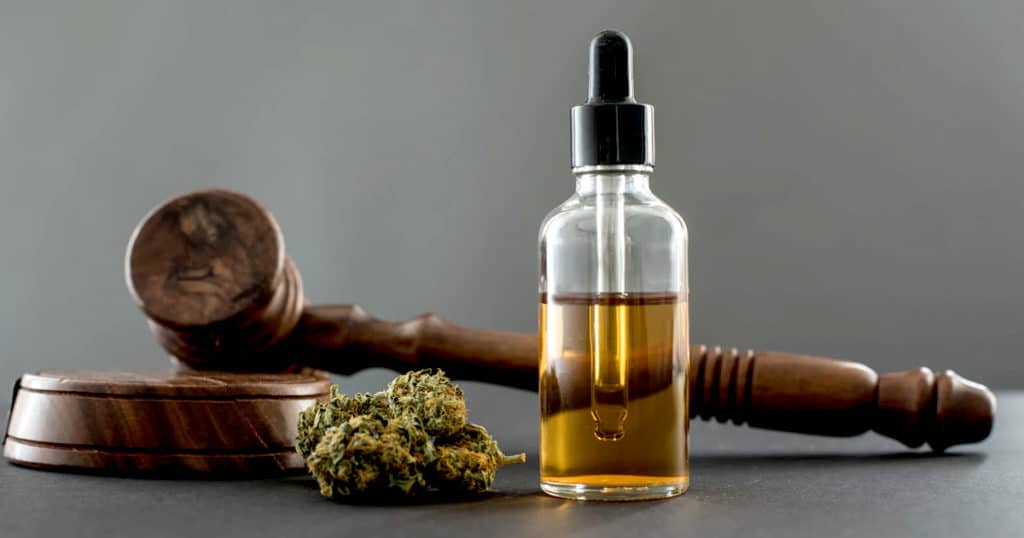The saga continues in the battle over the rights of hemp extractors versus the DEA. The US Drug Enforcement Agency is standing its ground with regard to the assertion that any hemp products with THC levels above 0.3% – even during the extraction process – are illegal.
At a Court of Appeals yesterday, in Washington DC, the DEA asserted to the federal court that it is illegal to process hemp into an intoxicant, despite the language of the Farm Bill – a bill that legalized the production of hemp – being incredibly unclear on the matter.
What Is The Farm Bill?
The Farm Bill of 2018 was signed into legislation by President Trump and effectively removed hemp and its derivatives from the Controlled Substances Act, providing they had a THC content of 0.3% and include Delta-9 THC and/or its isomers.
The Farm Bill stipulates that the THC content is based on the hemp’s dry weight both before and after the extraction process. However, the DEA continues to argue that some hemp includes a THC content that is higher than 0.3%, which would make them illegal.
According to MJBizDaily, Sarah Carroll, a lawyer for the DEA, had this to say yesterday, “We’re talking about things that are too high in THC to qualify as hemp. If a substance like that is created from a cannabis plant, but the substance itself is high in THC, the substance does not qualify as hemp and is subject to regulation.”
The Extraction Process
Facing off against the DEA in the Court of Appeals were the Hemp Industries Association (HIA) and RE Botanicals, a CBD manufacturer from South Carolina.
The HIA appealed to the courts, asking that they refrain from allowing the DEA to criminalize hemp extracts if they exceed 0.3% THC in any step of the extraction process. The issue for hemp extractors arises when, during the extraction process, the THC content can rise higher than the allotted 0.3%. However, what the DEA fails to note is that this is something that happens to even low-THC hemp.
Shane Pennington, the lawyer for the HIA, argued that despite the fact that hemp can go “hot” or above the legal limit of THC during the extraction process, the hemp producers have the ability to adjust the formulas so that the end product is within the legal limit.
It is for this reason, Pennington continued, that the Farm Bill specifically defined hemp based on its dry weight before and after extraction, even if the THC content rises during the process. According to Hemp Today, “Dry weight measurements are commonly taken from the hemp plant before processing, and from final hemp-derived products. Legislators have said the DEA must specify its requirements and streamline hemp directives by clarifying the legal means for processing.”
The vague language in the Farm Bill, as well as the DEA’s desperation to criminalize hemp, is what has led to this fight in the first place, and RE Botanicals, as well as the HIA, are pleading with the Court of Appeals to force the DEA to back down on their criminalization of hemp products that exceed the legal THC limit at any point in the extraction process. Pennington asserted that this entire conflict between the DEA and hemp extractors is the DEA’s way of trying to control the CBD industry, over which they currently have no control.
[Related Reading: Cloud Looming Over Hemp-Derived THC Market]
It’s certainly not helping the case that there are hemp producers out there who are purposely producing hemp-derived products that contain higher levels of THC or Delta-9 THC, taking advantage of the current unclear regulations. However, the next Farm Bill, which will be put into legislation in 2023, should include new regulations and clearer language that will hopefully put a stop to those who are skirting the law, so that the DEA stops coming after hemp producers.
As for the current fight between the DEA and HIA, the Court of Appeals is expected to decide the outcome of the case in the next three to six months.
Enjoyed that first hit? Come chill with us every week at the Friday Sesh for a freshly packed bowl of the week’s best cannabis news!

















